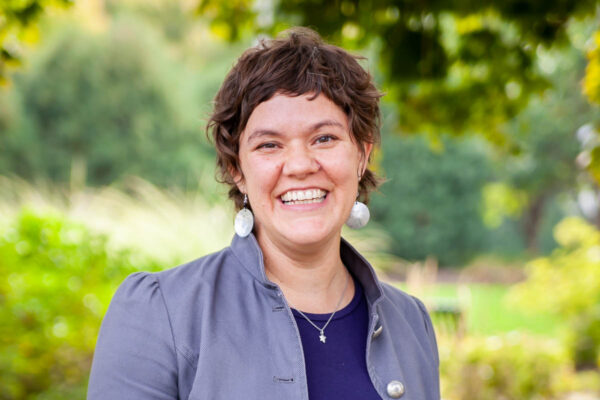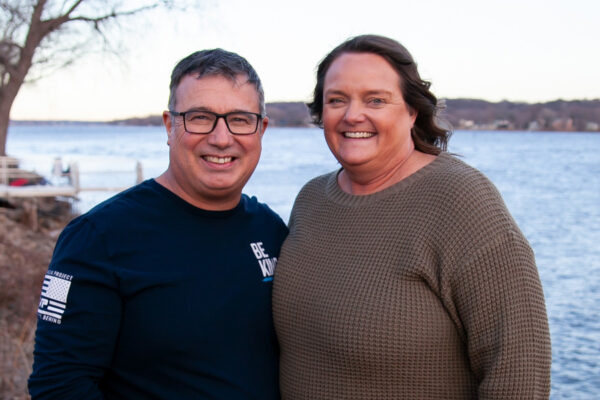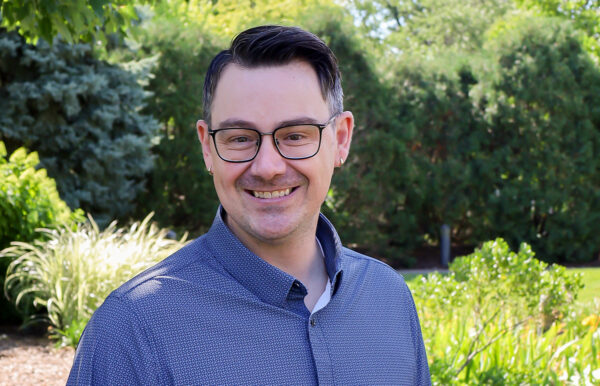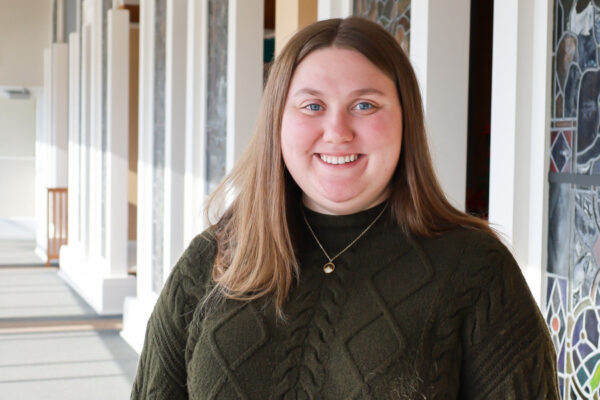Mentors encourage Habitat families
Saturday mornings are when new beginnings happen. That is when groundbreakings take place, and dedications, too, for Habitat for Humanity Quad Cities. It’s also when volunteers and partner families come together to build the homes where those new beginnings take root. A family mentor is almost always there on those Saturdays, rooting the family on with love, advocacy, and an eye toward the future – with a hammer, saw, or paintbrush in hand.
“I have been inspired by the partner families as they work so hard for the opportunity to purchase homes that will provide stability and safety for their families,” said Belinda Holbrook, a mentor who recently earned a lifetime achievement award from Habitat. “I have personally heard the inspiring stories of immigrant families who have experienced unimaginable trials in their home countries before coming to the United States.”
Belinda also leads the crew of mentors. She and five fellow St. Paul members (Pam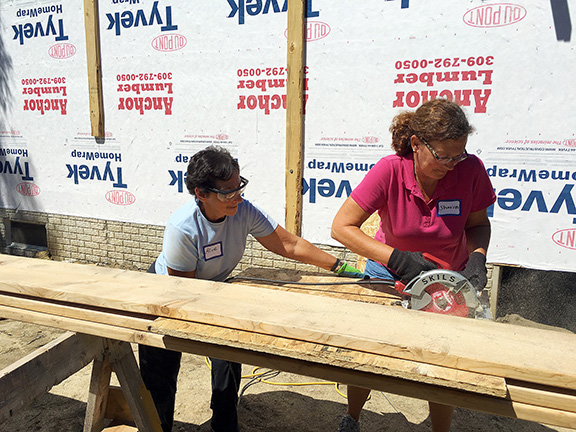 Crowe, Priscilla Hull, Susan Marty, Beth McConville, Ardith Simms) are part of a team of people who mentor partner families as they work their way to homeownership. Jan Trimble is the Habitat staff member who guides the mentors along the way.
Crowe, Priscilla Hull, Susan Marty, Beth McConville, Ardith Simms) are part of a team of people who mentor partner families as they work their way to homeownership. Jan Trimble is the Habitat staff member who guides the mentors along the way.
Family mentors’ most important job is to empower and encourage families.
All families must take part in classes that focus on finances, credit, insurance, maintenance and cleaning, and legal protections such as wills. The goal is to ensure they have as solid a foundation as possible – sometimes mentors will attend the classes, too.
Each adult in Habitat families must put in at least 250 hours of sweat equity, working on Habitat homes or at the Habitat offices. Many families exceed that amount, some significantly. Friends and family members can also work a portion of the sweat equity hours.
As building time draws near, families choose their lot. Mentors can help choose countertops, siding, lighting, shingles, and other materials that give the home a personal touch. They assist in filling out paperwork.
Monthly meetings offer mentors the opportunity to talk about what they’ve encountered as they guide families through the process. They talk about how they’ve handled specific situations, advice they’ve given, and seek input on how to manage upcoming challenges.
In addition to all of the official tasks, there are softer skills for mentors to keep in mind, too:
Remember this is about doing with, not doing for. Take extra time in the beginning with the family, as newly approved families have many things to learn at once. Seek to develop a friendship. Be upfront, honest, compassionate, and humble.
“I love the camaraderie we have,” Pam said of the people she’s mentored through questions about policies, sweat equity hours, and conversations over a plate of cookies.
“We’re advocates for them,” Beth said.
The St. Paul mentors talked about seeing families deal with racism, poverty, and other significant challenges. “Nobody chooses to be poor,” Belinda said. Meanwhile, the moments of beauty are just as breathtaking.
“We all work together, sweat together, paint together,” Ardith said. “It’s been truly a blessing,” Pam said.
On the day of a recent house dedication for a family from Togo, all sorts of people came to celebrate. Volunteers, Habitat staff, and friends gathered around to mark this particular new beginning. Thanks to a little help from the Internet, the family’s pastor from Togo led the group in song.
“I’m in awe of what families have to do, by the level of commitment it takes to have a better life,” Beth said. “It’s unbelievable the fortitude they have to make it happen. They just want a house, a stable place for their family.”
MENTOR: Mentors are a vital part of the Habitat process. To learn more about mentoring, connect with Belinda Holbrook, bholbrook@mchsi.com.
VOLUNTEER: This summer, St. Paul people will help build a Habitat home with Ciza Meckson and Furaha Veronique and their children, Othniel and Mwamini at 901 Farnam Street, Davenport. Signups for Wednesday evenings and Saturdays are going on now at stpaulqc.org/signups. No prior construction experience necessary.
Why shelter?
Habitat for Humanity knows that safe, decent and affordable shelter plays an absolutely critical role in helping families to create a new cycle, one filled with possibilities and progress. Affordable homeownership frees families and fosters the skills and confidence they need to invest in themselves and their communities. The outcomes can be long-lasting and life-changing.
With a little help, Habitat homeowners are able to achieve the strength and self-reliance they need to build better lives for themselves and their families. They are empowered to overcome the barriers that so often stand between their families and better, healthier, more financially stable lives.
Studies conducted by academics and experts draw a straight line between housing quality and the well-being of children. Surveys of Habitat homeowners show improved grades, better financial health, parents who are more sure that they can meet their family’s needs. Wherever we work, we witness tangible evidence that strong and stable homes help build strong and stable communities.
Decent shelter provides the solid foundation for all of this. It’s the platform on which a family lives out today’s realities and prepares for tomorrow’s transformations. Every Habitat house changes lives: those of the families who help build them and pay an affordable mortgage or loan and all those who offer them a hand up in a time of need. — Habitat for Humanity

